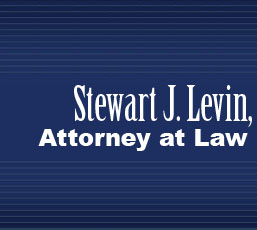As of 1993 the California Welfare and Institutions Code recognized that elders and dependent adults may be subjected to financial abuse and that this state has a responsibility to protect these persons [W&I Code Section 15600(a)].
Unfortunately, financial abuse such as obtaining a deed to a house by illegal and unethical means, or getting estate planning documents changed, is often done by family members who are in a position of trust. “Financial abuse is exploitation or theft or conversion of property by the elder's relatives, caregivers, or others; it can range from expropriating small amounts of cash to inducing the elder to sign away bank accounts or other property.”
Seymour Moskowitz, "Reflecting Reality: Adding Elder Abuse and Neglect to Legal Education", 47 Loy. L. Rev. 191, 197 (2001). Indeed, a study by the Nat'l Ctr. On Elder Abuse, "Nat'l Elder Abuse Incidence Study; Final Report" (1998) included financial abuse within the general category of elder abuse and concluded that, where the perpetrator of elder abuse and neglect was known, ninety percent were family members. Cited in 36 Loy. L.A. L. Rev. 667, 691.
What Is Elder Financial Abuse?
Financial abuse is defined in California's Elder Abuse and Dependent Adult Civil Protection Act (Welfare & Institutions Code section 15600 et seq.)
Financial Elder Abuse under California Welfare and Institutions Code § 15610.30 is defined as follows:
(a) “Financial abuse” of an elder or dependent adult occurs when a person or entity does any of the following:
(1) Takes, secretes, appropriates, or retains real or personal property of an elder or dependent adult to a wrongful use or with intent to defraud, or both.
(2) Assists in taking, secreting, appropriating, or retaining real or personal property of an elder or dependent adult to a wrongful use or with intent to defraud, or both.
(b) A person or entity shall be deemed to have taken, secreted, appropriated, or retained property for a wrongful use if, among other things, the person or entity takes, secretes, appropriates or retains possession of property in bad faith.
(1) A person or entity shall be deemed to have acted in bad faith if the person or entity knew or should have known that the elder or dependent adult had the right to have the property transferred or made readily available to the elder or dependent adult or to his or her representative.
(2) For purposes of this section, a person or entity should have known of a right specified in paragraph.
(1) if, on the basis of the information received by the person or entity or the person or entity's authorized third party, or both, it is obvious to a reasonable person that the elder or dependent adult has a right specified in paragraph (1).
(c) For purposes of this section, “representative” means a person or entity that is either of the following:
(1) A conservator, trustee, or other representative of the estate of an elder or dependent adult.
(2) An attorney-in-fact of an elder or dependent adult who acts within the authority of the power of attorney.
Remedies for Financial Elder Abuse:
Recovery of Property
Attorneys Fees and Costs
Punitive Damages
If you or a loved one has been a victim of elder financial elder abuse, please feel free to call 310.777.7550 or click here to email me.
Your initial consultation is always free.
No Recovery-No Fee.
Back to Practice Areas

